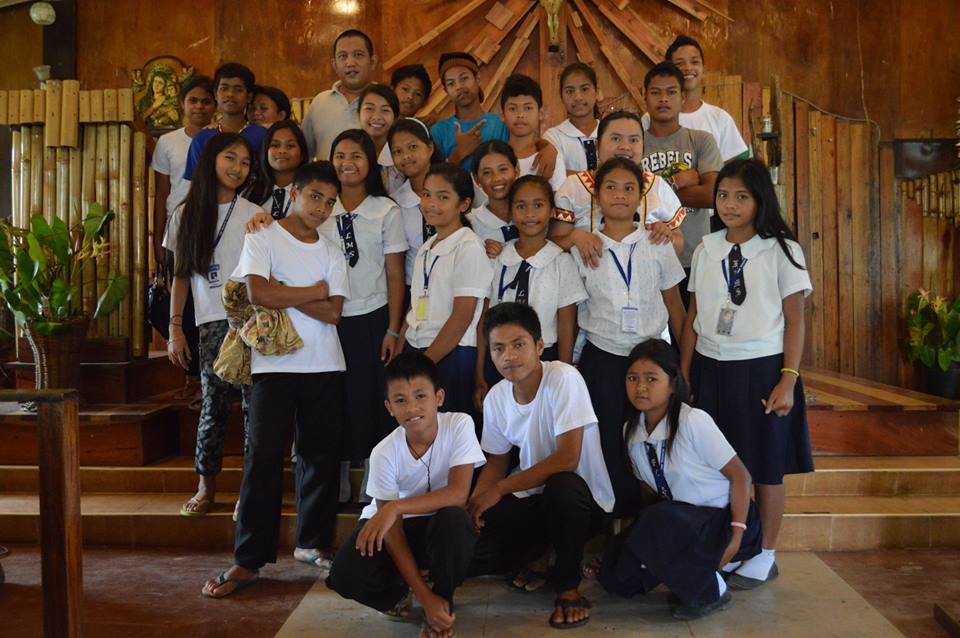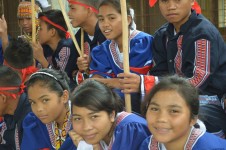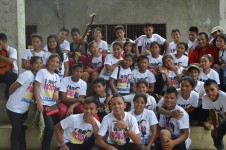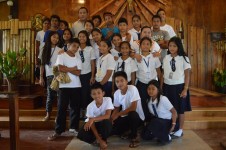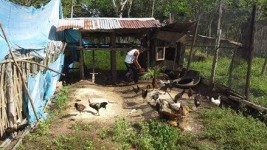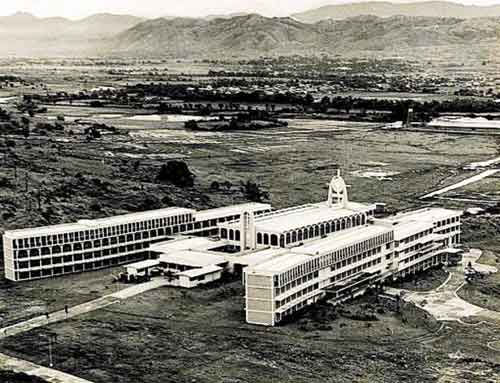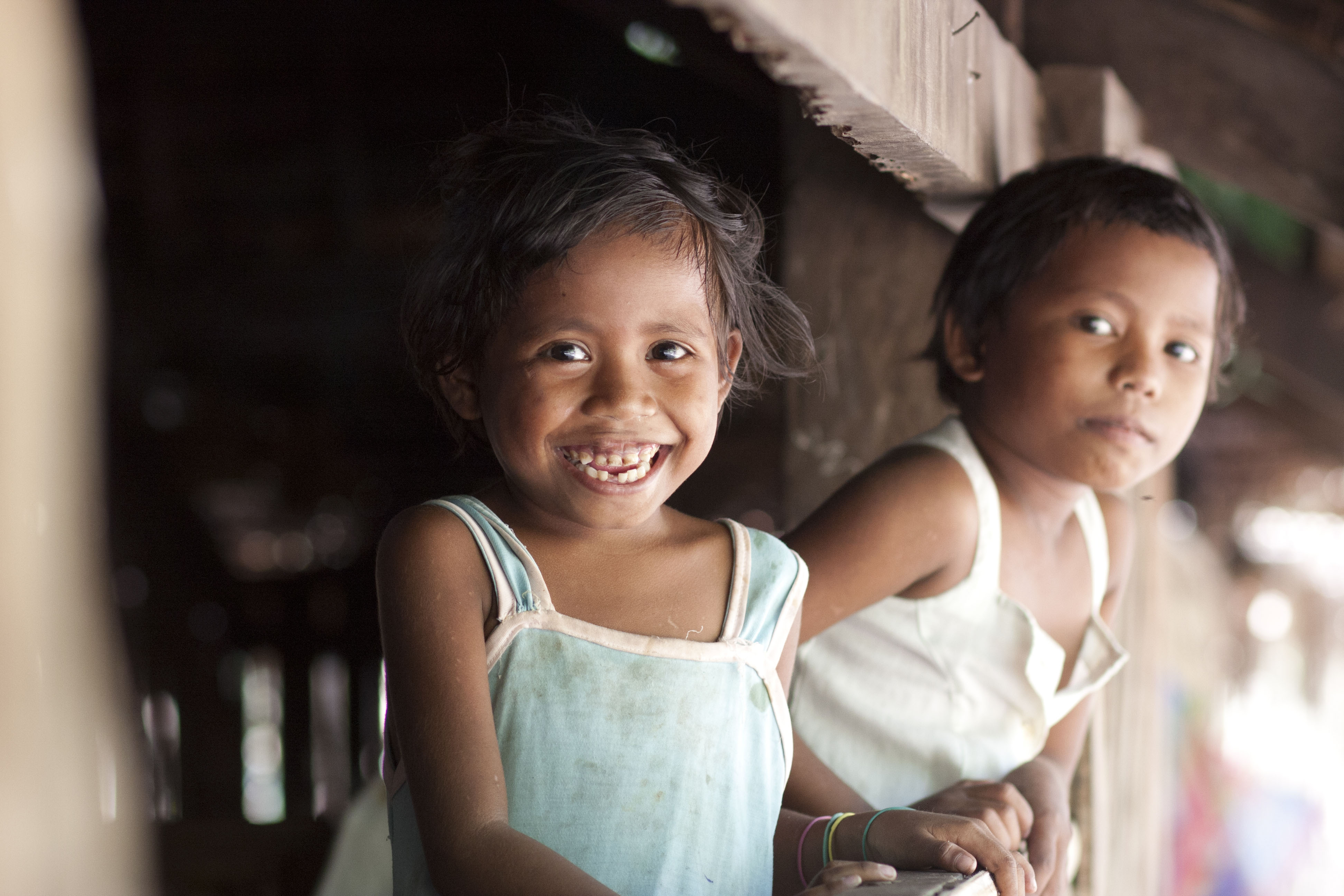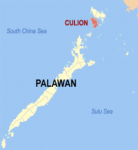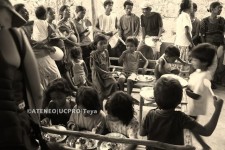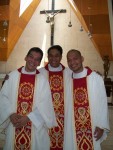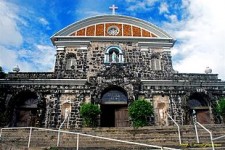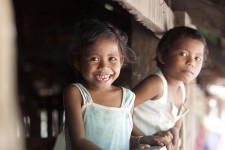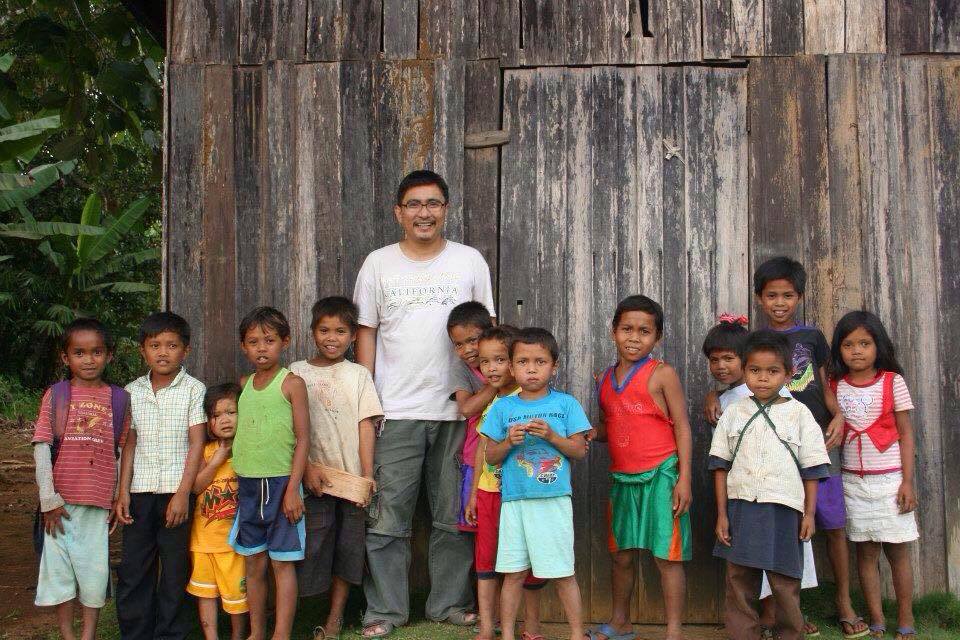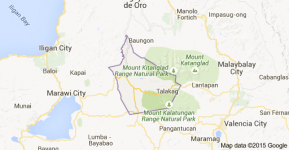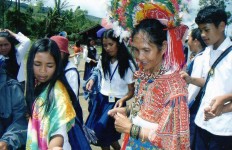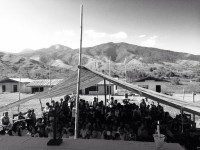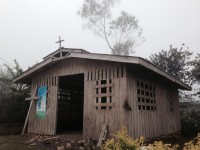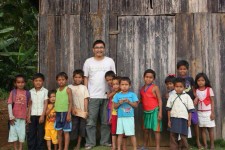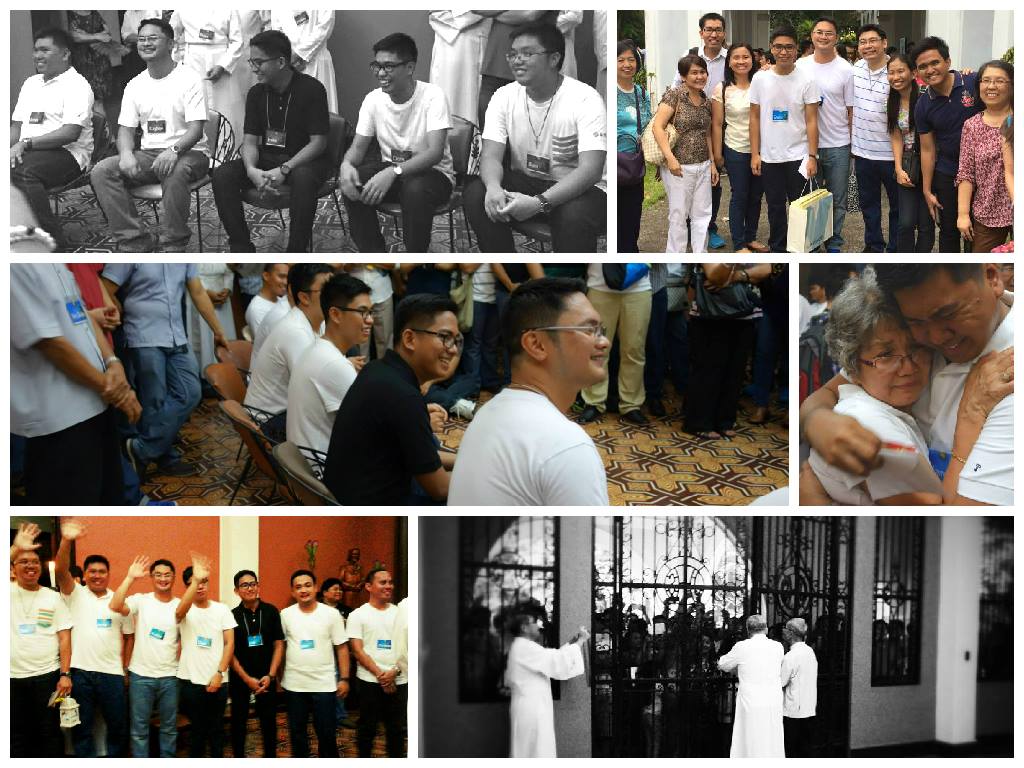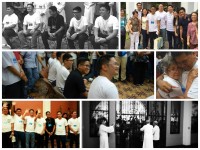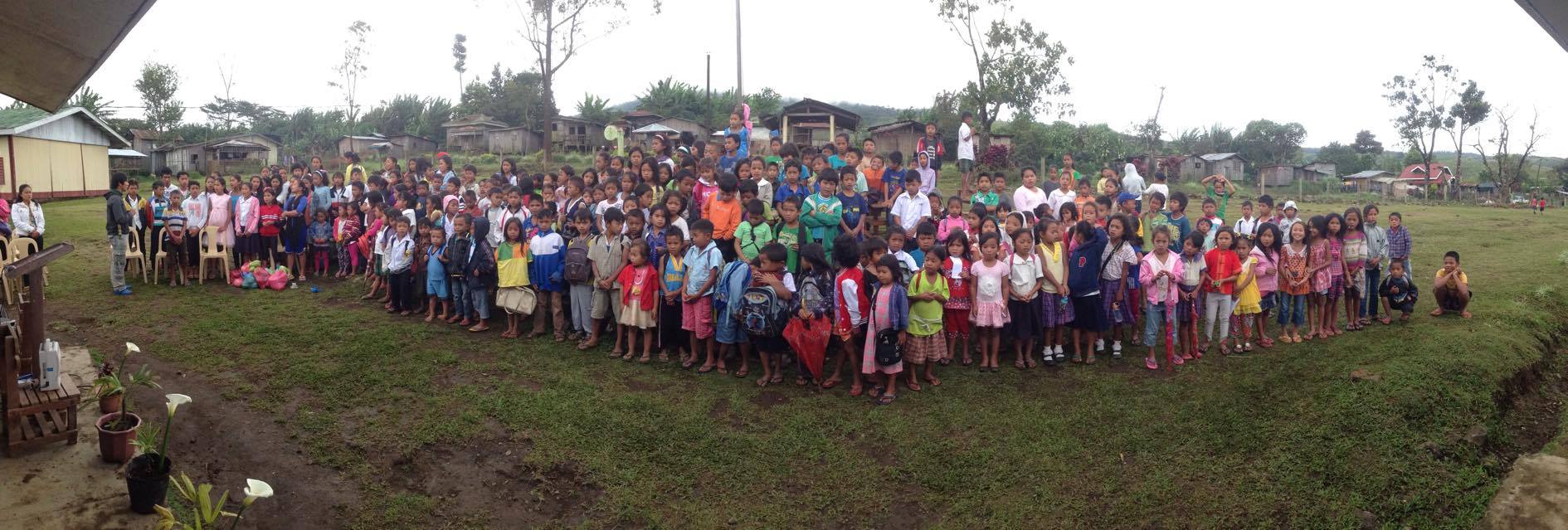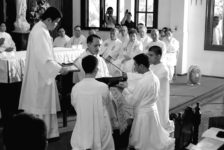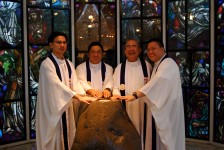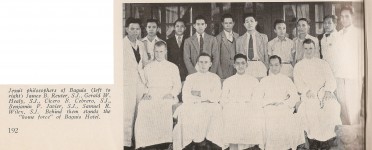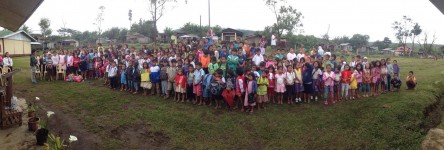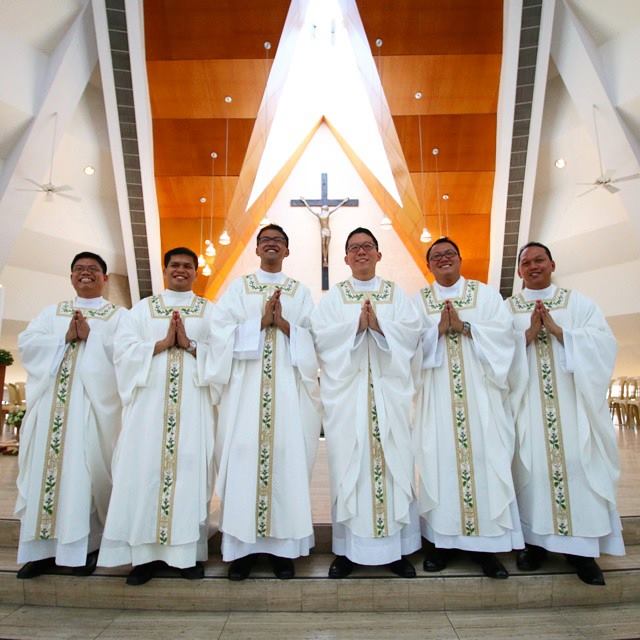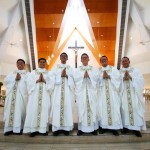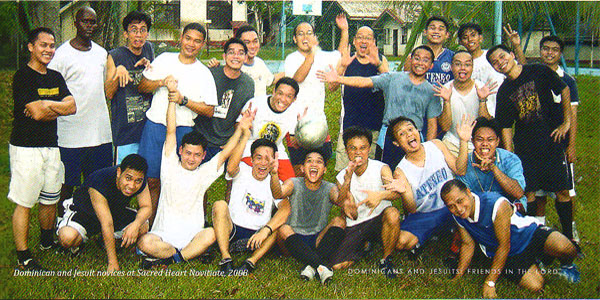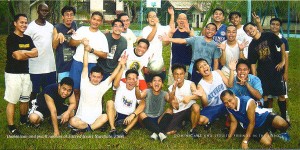Caring for Lumads: The Fr. Leoni Mission Foundation Inc. (FLMFI)
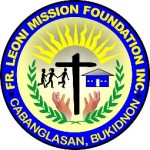 The Fr. Leoni Mission Foundation, Inc., is a non-stock, non-profit organization established in 1998 by Fr. Mateo Sanchez of the Society of Jesus in honor of the late Italian Jesuit, Fr. Ferrucio Leoni, SJ.
The Fr. Leoni Mission Foundation, Inc., is a non-stock, non-profit organization established in 1998 by Fr. Mateo Sanchez of the Society of Jesus in honor of the late Italian Jesuit, Fr. Ferrucio Leoni, SJ.
The Foundation was established in response to the growing concerns of the Lumads in Bukidnon. The indigenous people in Bukidnon have long been isolated from opportunities that lead to improved lives. The exploitation from unsavory characters have only worsened their condition. Thus, FLMFI started the literacy, livelihood and education programs for the Lumads.
For a time, the literacy, livelihood and scholarship programs ran successfully even with the constant change of the foundation leadership as appointed by the Society of Jesus. However, the drive to become sustainable has come to fore because of volatile US and Europe financial markets where majority of its donors come from. With the leadership of its new president, Fr. Braulio M. Dahunan, SJ, the foundation is embarking on reviving the program to continue the mission as it stands. LUMAD (Life for the Underprivileged and Marginalized through Advocacy and Development) Program aims to not only continue the literacy, livelihood, and scholarship programs of the foundation but also achieve sustainability by gradually entering into social enterprises that will eventually support its programs in the future.
As IP Ministry Coordinator of the Society of Jesus in the Philippines, SJ, Fr. Dahunan SJ set up the“Kahungyaman Cultural Center for Peace and Development” on January 17, 2013. Currently, the center serves as the base for the programs and projects of FLMFI. In the said center, the “Binhi Te Peglaom (Seed of Hope) Lumad Scholars Dormitory” for elementary and high school scholars, Heritage House, Mission House, Organic-Agriculture Production Demo Farm and Food Production and Livelihood Center are located.
Vision-Mission statement
We envision a holistic human formation of the Indigenous Peoples in their process for self-determination and for the sustainable development of their communities that is respectful to their culture and in accordance with their needs and aspirations. Thus, we need–
1. to deepen Jesuit presence, accompaniment and involvement with the Indigenous Peoples in the spirit of solidarity with them;
2. to provide direction in their struggle through community organizing participatory action research;
3. to empower their communities and leaderships through communal discernment and strengthening of roles and responsibilities in sowing good seeds for future generations to nurture and uphold;
4. to promote authentic dialogue and integration of culture and faith through a mutual enrichment between the indigenous culture, spirituality, religion and the Catholic Christian faith.
LUMAD programs: (Life for the Underprivileged and Marginalized through Advocacy and Development Programs)
LUMAD is a Visayan term that means “native” or “indigenous” person. They are more referred specifically to the natives or indigenous people that can be found in the Mindanao Region of the Philippines, a region that has often been associated with war and violence over the years. While many LUMADS suffer first-hand, the collateral damages of war such as displacement, loss of basic necessities, livelihood and housing, many also suffer neglect and exploitation brought about by loss of opportunities and inability of government to provide the basic necessities that would constitute what we call LIFE.
IP YOUTH EDUCATION AND FORMATION PROGRAM
Community-based Literacy program (kahungyaman literacy centers)
This program aims to provide non-formal basic education to Indigenous People (IP) communities. Since many of the children and adult IPs are unable to read and write because of lack of access to formal basic education, they are vulnerable to the deceptions of lowland traders and politicians. We have literacy centers for day care pupils and alternative learning system for adult and out-of-school youth. These centers are ran by volunteer para-teachers who reside in the area. Educational materials and food during school days are provided to help the learners in their learning and to free themselves from household chores that may take them away from learning. It is hoped that with this program, we will lessen the percentage of illiteracy among IP communities
Formal basic education scholarship program (binhi té péglaom lumad scholars dormitory)
This program aims to provide formal basic education to IP youth who have the capacity to go through the rigors of formal education. Since public schools are far from their homes, most often they would stop schooling due to lack of sufficient food for their weekly consumption. Thus, we have taken scholars to live in the “Binhi Te Peglaom Lumad Scholars Dormitory” to go through formal education in a nearby public school in the Poblacion for elementary students and in Fr. Leoni Memorial School for high school students. Aside from providing them with quality education, the dormitory provides holistic formation to the scholars with the hope that they will become future leaders who will serve in their respective communities.
Volunteers for IP communities & enhancement program
This program aims to develop our scholars who graduated from high school to become more equipped and ready for college education as they prepare to take examinations for scholarship grants while they are also engaged in teaching, organizing, social enterprise and entrepreneurial activities of Fr. Leoni Mission Foundation, Incorporated. This program will also serve as an on-going formation with regard to personal development, as well as, leadership and communication skills of our scholars.
College aid and vocational support program
This program aims to facilitate our high school graduate scholars to get scholarship grants or sponsorships either for college or voc-tech courses according to their capacities and capabilities. They will still continue to be closely monitored by Fr. Leoni Mission Foundation, Incorporated, while at the same time they will continue with their involvements with FLMFI activities and formation programs. We instil a sense of responsibility to our scholars so that they will hopefully go back to serve their own people and develop their communities.
We now have five college scholars who get scholarship grants but we are supporting them for their living allowances: Jession Diwangan is a DOST and XU scholar taking up BS-ECE in Xavier University; Mitchell Ayawon is a Monark Foundation Technical Institute scholar; Reymond Ally, Margie Tumalas and Gia Sarinao are BIC scholars taking up BS-Religious Education in San Isidro College. We need Php 118,200.00 every year to support them in their studies.
SUSTAINABLE ORGANIC-AGRICULTURE AND ENTREPRENEURIAL DEVELOPMENT PROGRAM
This program aims to sustain all our programs by generating income through organic-agriculture production and social enterprise. This will also provide sustainable human and community development through trainings on organic-agriculture and entrepreneurship that will ensure food security and livelihood. This program will also ensure the protection of the environment and proper management of natural resources. Apparently this program develops a deeper sense of cooperation and solidarity amongst the Indigenous Peoples for sustainable development of their particular communities and for lasting peace at large.
We just started this recently, and so we need assistance in order to develop this further and be able to produce more products. Thus, we need a start-up capital of Php 200,000.00.
IP LEADERSHIP ENHANCEMENT AND DEVELOPMENT PROGRAM
This program aims to empower IP leaders who will be responsible in realizing sustainable development and lasting peace in their communities in the spirit of solidarity and in the promotion of the common good. Thus, it is crucial to accompany these leaders in their process of becoming credible and trustworthy leaders: who will safeguard their beautiful cultural heritage and tradition; who will have vision for their people; and who will carry-out their mission in the manner befitting of a good IP leader. Seminars, workshops, trainings, and formation programs will be provided in order to capacitate and equip leaders.
We need Php 124,000.00 every year in order to support the activities of IP leaders in their Social, Political, Economic, Communal and Spiritual (SPECS) formation. We are also facilitating seminars, workshops and trainings that will capacitate and equip them as leaders.
Donate
You can course your donations via:
- Credit Card – Visit www.phjesuits.org and click on “Give Online”
- Bank of the Philippines (BPI) Branch – Make a bill’s payment to “PJAA”; indicate name in place of reference number.
- BPI Online, ATM or Phone – Enroll “PJAA” as a biller/merchant and make a payment. (Note: Please send us acopy of your transaction slip by fax to 926-8150 or by email to aid@phejsuits.org and include your contact information so that we can properly acknowledge your donations.)
